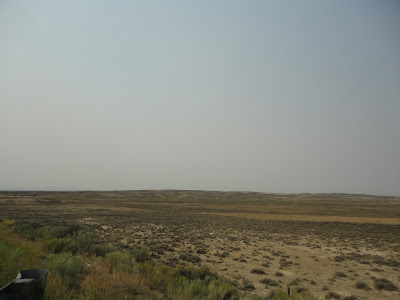⭐ Re-release Book Spotlight ⭐
Golden Tiger
by Liz Harris
Publication Date: November 2nd, 2023
(First published in 2016, under the title The Lost Girl.)
Publisher: Heywood Press
Pages: 364
Genre: Historical Romantic Fiction
Wyoming, 1870s
Found as a new born baby, her Chinese mother lifeless beside her, Charity Walker was given a home by an American mining family. But over the years, the mounting tensions between the growing numbers of Chinese immigrants and the locals see Charity shunned by both communities.
When Charity’s one friend, Joe, leaves the town, she finds herself isolated, and despite her reservations, she forms a friendship with the only other Chinese girl in the town, and finally starts to feel as if she belongs somewhere.
But finding a place to call home for a girl with a Chinese face, who dresses, speaks and behaves like an American, was never going to be that easy…
GOLDEN TIGER: Out of the ashes
I can hear you groaning!
You’re thinking that, having read my article a few months ago about my inspiration for A Bargain Struck, which is set in Wyoming 1887, you’re going to hear more of the same as Golden Tiger is also set in Wyoming in the 1880s.
But not so. Or not very much so.
Golden Tiger is the second edition of a novel that was first published in 2016 under the title The Lost Girl. When the novel first came out, it attracted many excellent reviews, despite not being widely promoted, and despite being one of a great many novels with the same title.
Why wasn’t it widely promoted, I hear you ask. This article will answer that question by giving you a behind-the-scenes peek at what went on in the months before the publication of The Lost Girl. It will also explain why the second edition has a different title from the first.
To set the scene. When researching Wyoming’s history for A Bargain Struck, both by going there and through books, I came upon one or two references to the way in which the Chinese were treated by the Americans in the 1870s and 1880s.
I was surprised to see this as when I had done a course in American Studies at LA City College, there had been no mention of the situation with the Chinese. I phoned my New York friend, who had been born and raised in California, and asked if she had been taught in school about the past antagonism towards the Chinese, and if the name Rock Springs meant anything to her. The answer to both of those questions was no.
And neither of us knew of any novels that had shone a light on what was a shameful period in American history.
Curious to know more, I decided to delve deeper, and was greatly helped in doing so by the productive relationship I developed with the curator of the Rock Springs Museum. I was extremely grateful to her for the information she took out of the archives and sent to me. It was fascinating, and before long, I knew that I would be setting my next historical novel - with a romantic theme, of course - against this background.
I knew instantly that the woman would be 100% Chinese and the man a white American. This would pose a problem for them. Love between a Chinese and an American at that time, and in a number of States, until not so many years ago, was forbidden by law in the US.
My ‘heroine’ Charity was born. Given a home by an American mining family in arid southwest Wyoming, she would be Chinese in appearance, but being brought up by Americans, she would speak with an American accent, wear American clothes and have an American forthrightness which was very different from the shy, retiring nature of a Chinese girl.
My ‘hero’ Joe came into being. On a different wave length from his miner father and older brother, from early in his life, Joe had yearned to live and work on a ranch. But southwest Wyoming was a stony area, suitable only for mining, not for agriculture or cattle grazing.
I needed a name for the town in which Charity and Joe lived. It was to be modelled on Rock Springs, but I didn’t want to use that name, both because I wanted to simplify the layout of the town, and it was easier to do so if the town had a different name, and because I didn’t want the associations that might have been attached to the name. I looked for people who had figured in the history of the region and came upon a Judge Carter. Strangely, unlike many of those who had prominence in their community, he had never had a town named after him. He does now. I called the town Carter Town.
As I started writing the book, I felt it could have only one title – Golden Tiger. It seemed the perfect title for the novel.
To move on in time. The novel had been finished and sent to my then publisher, and I had done the edits. At that time, they were publishing the books first as an ebook, and then, a few months later, as a paperback. When I was sent the cover of the ebook, I was aghast!
It was a striking cover in its way, and very much of the time, but the girl on the cover was Eurasian, with loose hair hanging down the side of her face, and blown up large, there was a suggestion of lip gloss. The Charity who was lodged in my heart was 100% Chinese, wore her hair in braids, and lip gloss wasn’t common in the 1870s and 1880s!
I expressed my concern that she wasn’t Chinese, saying that the book had identity as a theme, and was specifically about the Chinese and Americans, yet the girl on the cover was clearly Eurasian. No one will notice, my publisher told me. There was some ensuing dialogue between us about it, but I lost the battle.
I was then informed that they were going to change the title, and Golden Tiger was dropped in favour of The Lost Girl. It became just another among the hordes of novels with that same title.
The ebook was published, and I’m very grateful to those who found it and left their lovely reviews. The first email I received after its publication was from Fenella Jane Miller, an author friend, who asked if I hadn’t realised that the girl was Eurasian!
Prior to the paperback appearing, I was sent a copy of the different cover that would be used for the paperback. There was no girl at all. It was just a stock rural scene that could have been almost anywhere, at any time.
My knowledge of cars isn’t great, so it was extremely fortunate that fellow author Janet Gover, to whom I showed the cover, pointed out that what I had thought a wagon in the centre of the cover, was actually a truck from about 1910! There were no trucks in the 1880s. Upon my request, the publisher removed the truck from the scene.
My publisher had given me a fabulous launching pad, were very canny when it came to marketing, and had made sterling efforts with all my books apart from this book. Despite what they did, and didn’t do, with The Lost Girl, I’ll always be grateful to them for the start they gave me.
The novel has always been Golden Tiger in my mind, and if you read it, or have read it, you’ll know why. And I’m thrilled that it’s being published again, but this time under the title I gave it, which is the title that belongs to it, and with a cover I love.
Thank you for a fascinating post, Liz. What a journey!
Liz Harris
Born in London, Liz Harris graduated from university with a Law degree, and then moved to California, where she led a varied life, from waitressing on Sunset Strip to working as secretary to the CEO of a large Japanese trading company.
Six years later, she returned to London and completed a degree in English, after which she taught secondary school pupils, first in Berkshire, then in Cheshire and finally in Oxfordshire.
In addition to the seventeen novels she’s had published since her debut novel The Road Back, Liz has had several short stories in anthologies and magazines.
Liz recently moved to Windsor, in Berkshire. An active member of the Romantic Novelists’ Association and the Historical Novel Society, her interests are travel, the theatre, reading and cryptic crosswords.
To find out more about Liz, visit her website at:













Thank you very much for allowing me to talk to the Coffee Pot Book Club readers today, Cathie. I really did enjoy it.
ReplyDeleteThank you for such an insightful post, Liz. I'm sure many writers will find it useful.
DeleteHappy Launch Day! :-)